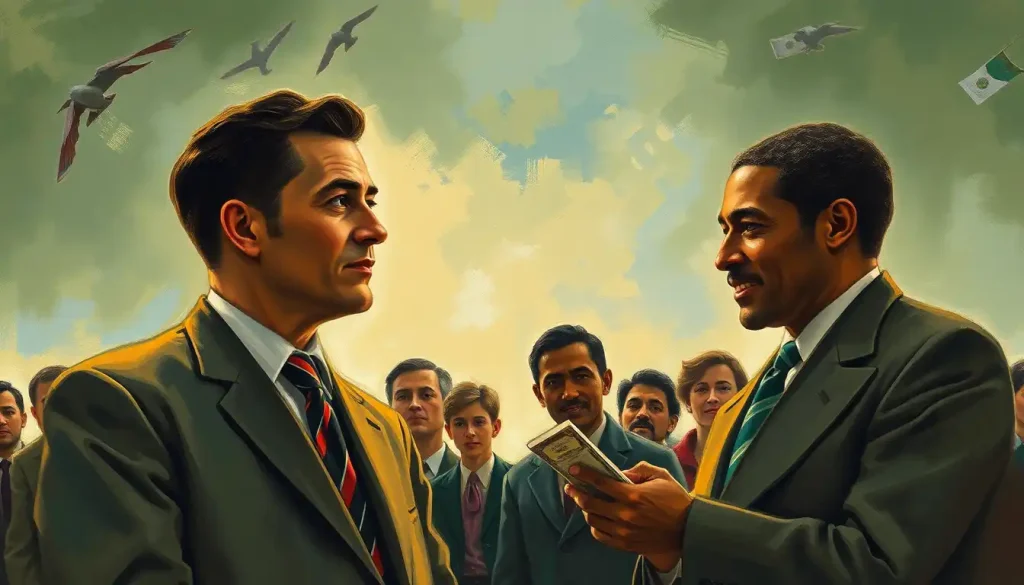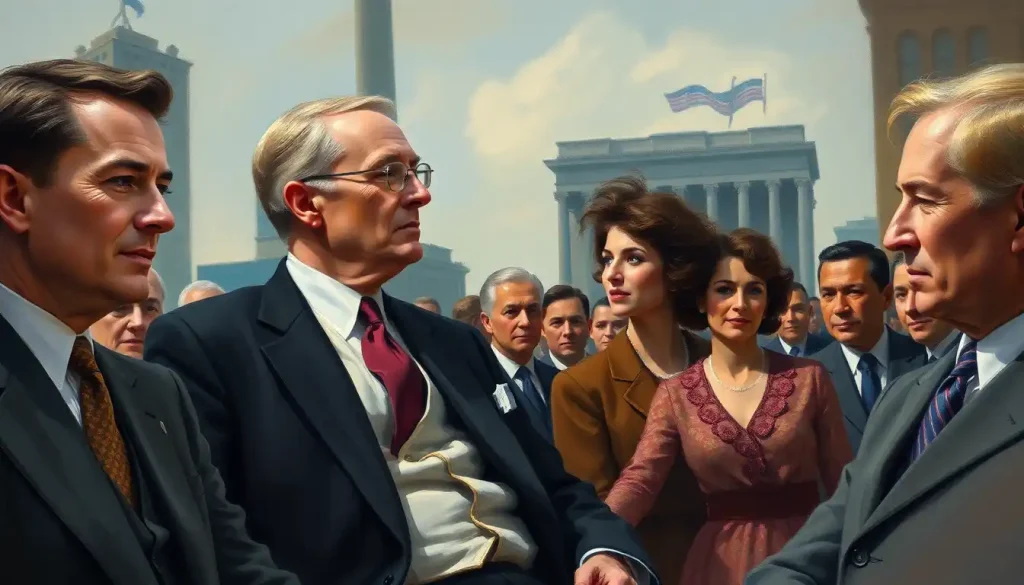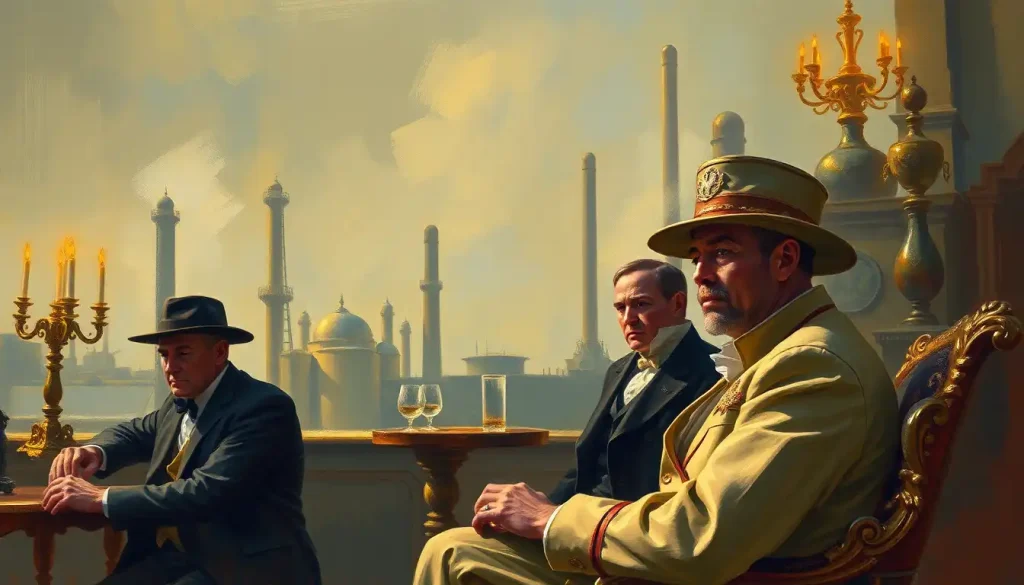From the gilded penthouses of Manhattan to the struggling streets of rural America, the growing chasm between rich and poor has sparked a literary revolution that’s reshaping how we think about money, power, and the future of our economy. This surge of interest in wealth inequality has given rise to a plethora of books that dissect, analyze, and propose solutions to one of the most pressing issues of our time.
Wealth inequality, at its core, refers to the uneven distribution of assets among individuals in a society. It’s a concept that’s been around for centuries, but in recent years, it’s taken center stage in public discourse. The gap between the haves and have-nots has widened to such an extent that it’s impossible to ignore. This disparity isn’t just about numbers on a balance sheet; it’s about opportunities, health outcomes, and the very fabric of our communities.
Understanding economic disparity has become increasingly crucial in our interconnected world. It’s not just an academic exercise or a topic for policy wonks. The consequences of wealth inequality touch every aspect of our lives, from the quality of our education systems to the stability of our democracies. As this realization has dawned on more people, a new genre of literature has emerged, dedicated to exploring and explaining the complexities of economic inequality.
The history of wealth inequality literature is as old as economics itself. From Adam Smith’s “The Wealth of Nations” to Karl Marx’s “Das Kapital,” thinkers have long grappled with questions of economic fairness and distribution. But in the wake of the 2008 financial crisis and the subsequent Occupy Wall Street movement, there’s been a renaissance in books tackling these issues head-on.
Classic Books on Wealth Inequality: Laying the Groundwork
One cannot discuss modern wealth inequality literature without mentioning Thomas Piketty’s groundbreaking work, “Capital in the Twenty-First Century.” Published in 2013, this doorstop of a book became an unlikely bestseller, captivating readers with its data-driven analysis of wealth and income inequality over the past two centuries. Piketty’s central thesis – that the rate of return on capital tends to exceed the rate of economic growth, leading to increasing inequality – sparked fierce debates and reshaped economic thinking.
Piketty’s work didn’t emerge in a vacuum. It built upon and complemented other seminal texts in the field. Joseph E. Stiglitz’s “The Price of Inequality” offers a scathing critique of the American economic system, arguing that inequality is a choice – the result of government policies that favor the wealthy. Stiglitz, a Nobel laureate in economics, brings his considerable expertise to bear on the subject, making complex economic concepts accessible to the general reader.
Another classic in this genre is “The Spirit Level” by Richard Wilkinson and Kate Pickett. This book takes a different approach, focusing on the societal impacts of inequality. The authors present compelling evidence that more equal societies almost always do better across a wide range of social indicators, from health to crime rates. Their work challenges the notion that inequality is a necessary evil for economic growth and suggests that reducing disparities could benefit everyone, rich and poor alike.
Contemporary Analyses: Fresh Perspectives on an Age-Old Problem
As the conversation around wealth inequality has evolved, so too has the literature. A new wave of authors has emerged, offering fresh perspectives and challenging conventional wisdom. One standout in this category is Anand Giridharadas’s “Winners Take All.” This provocative book takes aim at the world of elite philanthropy, arguing that the same people who have benefited most from our economic system are now positioning themselves as the solution to the problems they’ve helped create.
Giridharadas’s work is part of a broader trend of books that look beyond pure economics to examine the cultural and social dimensions of inequality. Another example is Jason Hickel’s “The Divide,” which places global inequality in a historical context, tracing its roots to colonialism and the exploitation of the Global South. Hickel’s work challenges readers to rethink their assumptions about global development and the causes of poverty.
For those seeking a more optimistic take on these issues, Robert B. Reich’s “Saving Capitalism” offers a roadmap for reform. Reich, a former U.S. Secretary of Labor, argues that the fundamental structures of our economic system can be reshaped to create a more equitable society. His book is a call to action, urging readers to engage in the political process to bring about change.
Digging Deeper: The Historical Roots of Wealth Inequality
To truly understand wealth inequality, we must grapple with its historical origins. A number of important books have emerged in recent years that do just that. Mehrsa Baradaran’s “The Color of Money” is a powerful exploration of the racial wealth gap in America. Baradaran traces the history of Black banks in the United States, revealing how systemic racism has shaped economic opportunities for generations.
For a broader historical perspective, Walter Scheidel’s “The Great Leveler” offers a sweeping look at inequality throughout human history. Scheidel’s thesis is both fascinating and disturbing: he argues that significant reductions in inequality have historically only come about as a result of catastrophic events like wars, revolutions, or pandemics. His work raises challenging questions about the prospects for peacefully reducing inequality in our own time.
A more optimistic view of history can be found in Chris Harman’s “A People’s History of the World.” While not exclusively focused on wealth inequality, Harman’s book provides valuable context for understanding how economic systems have evolved over time and how ordinary people have fought for greater equality throughout history.
Solutions-Oriented Approaches: Charting a Path Forward
While understanding the problem is crucial, many readers are hungry for solutions. A new crop of books has emerged to meet this demand, offering bold proposals for tackling wealth inequality. Rutger Bregman’s “Utopia for Realists” has captured imaginations with its advocacy for radical ideas like universal basic income and a 15-hour workweek. Bregman’s book is a refreshing antidote to doom and gloom, arguing that a more equal world is not only possible but within our grasp.
For those seeking a more detailed policy roadmap, Emmanuel Saez and Gabriel Zucman’s “The Triumph of Injustice” offers a comprehensive plan for tax reform. The authors, both economists, argue for a return to progressive taxation and present data-driven proposals for closing loopholes and ensuring that the wealthy pay their fair share.
Taking a different tack, Sam Pizzigati’s “The Case for a Maximum Wage” proposes a radical solution to runaway executive compensation. Pizzigati argues that capping top incomes could help reduce inequality and create more harmonious, productive workplaces. While controversial, his ideas have sparked important conversations about the nature of work and compensation in our society.
The Impact: How These Books Are Shaping the Conversation
The surge of literature on wealth inequality hasn’t been confined to bookstore shelves. These works have had a profound impact on public discourse, policy debates, and even political campaigns. Ideas that once seemed radical, like wealth taxes or universal basic income, have entered the mainstream political conversation, thanks in part to the popularization of these concepts through books.
Media coverage of wealth inequality has also expanded dramatically, with journalists and commentators frequently citing works like Piketty’s “Capital” or Giridharadas’s “Winners Take All.” This increased attention has helped raise public awareness of the issue, making it a key concern for voters and policymakers alike.
In the academic world, these books have inspired new lines of research and reinvigorated old debates. Economists, sociologists, and political scientists are building on the work of authors like Piketty and Stiglitz, developing new models and gathering fresh data to better understand the dynamics of inequality.
Why Reading About Wealth Inequality Matters
In our current economic climate, understanding wealth inequality is more important than ever. The COVID-19 pandemic has exacerbated existing disparities, with the wealthy largely insulated from the economic fallout while many working-class families struggle to make ends meet. Books on wealth inequality provide us with the tools to understand these trends and imagine alternatives.
Moreover, engaging with this literature is a form of civic participation. By educating ourselves about these issues, we become better equipped to participate in democratic processes and advocate for change. Whether you agree or disagree with the authors’ conclusions, reading these books can help you form your own informed opinions on one of the most pressing issues of our time.
So, where should you start? If you’re new to the topic, Wealth, Power, and Inequality: A Critical Analysis of Modern Society offers a comprehensive overview. For those looking to delve deeper, Wealth Inequality Quotes: Powerful Insights on Economic Disparity provides a curated collection of thought-provoking ideas from various authors.
If you’re interested in exploring the psychological aspects of wealth, Wealth Mindset Books: Top Reads to Transform Your Financial Perspective offers valuable insights. For a focus on racial economic disparities, Black Wealth Books: Essential Reads for Financial Empowerment and Success is an excellent resource.
For those seeking a more technical understanding, Wealth Inequality: Understanding Its Definition, Causes, and Global Impact provides a detailed exploration of the concept. If you’re looking for practical advice on building personal wealth, Books on Wealth: Top 10 Must-Reads for Building Financial Success offers a curated list of recommendations.
To understand the darker implications of extreme inequality, Wealth Supremacy: The Dark Side of Economic Inequality provides a critical perspective. For those seeking practical strategies for building wealth, How to Build Wealth: Essential Books for Financial Success offers valuable guidance.
If you’re interested in the terminology used in discussions of inequality, Wealth Disparity: Understanding the Growing Gap Between Rich and Poor provides clear definitions and explanations. Finally, for those who see reading itself as a path to financial success, Book Wealth: Unlocking Financial Success Through Literary Knowledge explores how literary engagement can contribute to personal and financial growth.
The conversation about wealth inequality is far from over. As our economy continues to evolve, new challenges and opportunities will emerge. By engaging with this literature, we equip ourselves to be active participants in shaping a more equitable future. So pick up a book, join the conversation, and be part of the solution. After all, understanding is the first step towards change.
References:
1. Piketty, T. (2014). Capital in the Twenty-First Century. Harvard University Press.
2. Stiglitz, J. E. (2012). The Price of Inequality: How Today’s Divided Society Endangers Our Future. W. W. Norton & Company.
3. Wilkinson, R., & Pickett, K. (2009). The Spirit Level: Why More Equal Societies Almost Always Do Better. Allen Lane.
4. Giridharadas, A. (2018). Winners Take All: The Elite Charade of Changing the World. Alfred A. Knopf.
5. Hickel, J. (2017). The Divide: A Brief Guide to Global Inequality and its Solutions. William Heinemann.
6. Reich, R. B. (2015). Saving Capitalism: For the Many, Not the Few. Alfred A. Knopf.
7. Baradaran, M. (2017). The Color of Money: Black Banks and the Racial Wealth Gap. Harvard University Press.
8. Scheidel, W. (2017). The Great Leveler: Violence and the History of Inequality from the Stone Age to the Twenty-First Century. Princeton University Press.
9. Harman, C. (2008). A People’s History of the World: From the Stone Age to the New Millennium. Verso Books.
10. Bregman, R. (2017). Utopia for Realists: How We Can Build the Ideal World. Little, Brown and Company.
11. Saez, E., & Zucman, G. (2019). The Triumph of Injustice: How the Rich Dodge Taxes and How to Make Them Pay. W. W. Norton & Company.
12. Pizzigati, S. (2018). The Case for a Maximum Wage. Polity Press.












Would you like to add any comments? (optional)